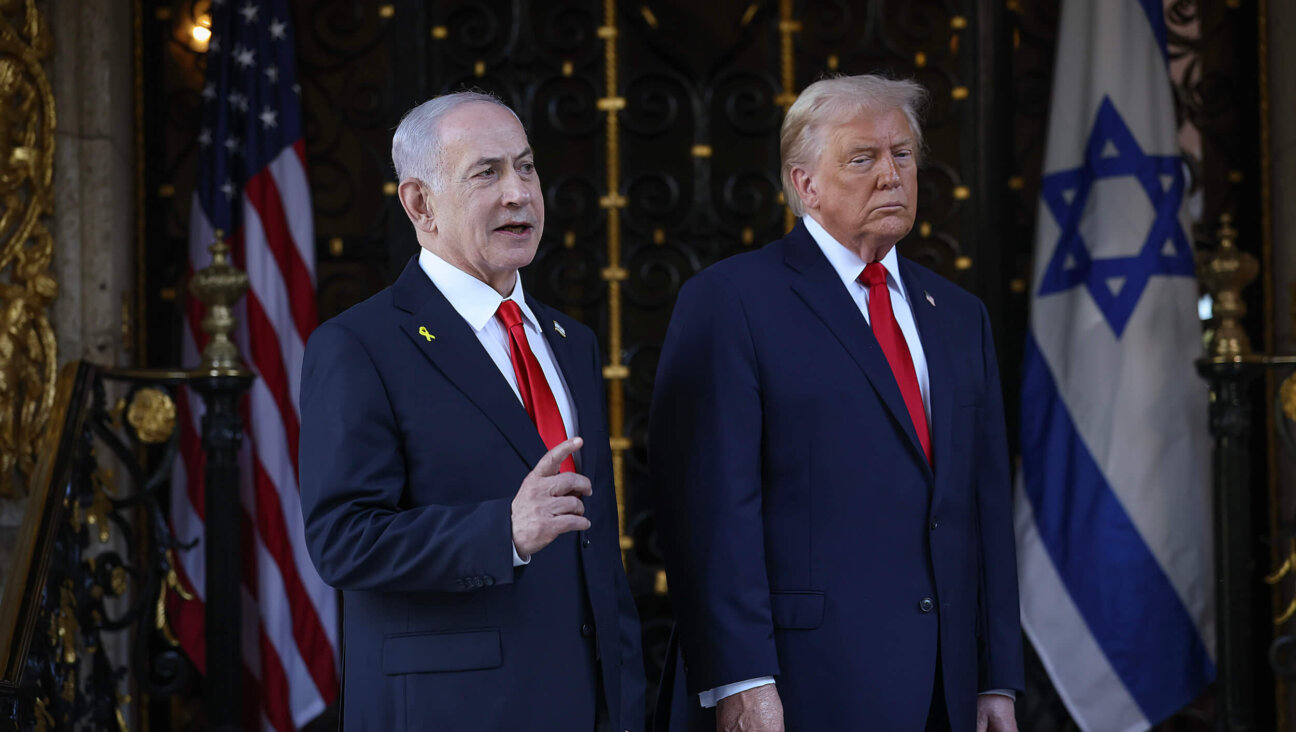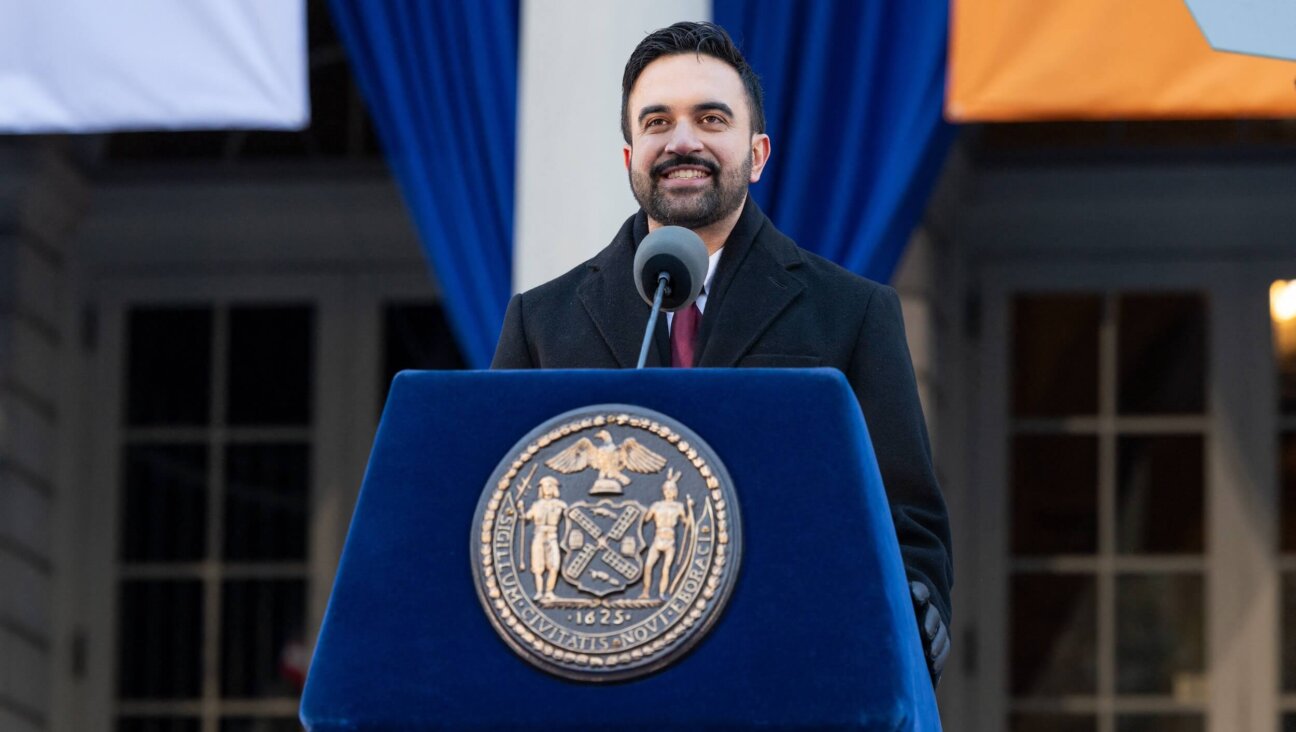A Peace Plan for Disaster
Yasser Arafat is the one who gains the most from the Geneva Understandings. The State of Israel is the prime loser.
During the past months, and especially after the acceptance of President Bush’s “road map” to peace, Arafat was urged finally to take concrete and serious steps against terrorism. Has he done anything to fulfill his obligations? What happens now in reality is exactly the opposite: While he and his accomplices continue to praise suicide bombers as martyrs, they themselves are hailed as partners for peace.
The Israeli architect of the Geneva plan is the former justice minister Yossi Beilin. He is the same Beilin who led Israel into the Oslo accords and then ignored all signs of Palestinian refusal to honor their commitments. By now we should know better. Arafat never used the word “peace” in Arabic. He said explicitly, in Johannesburg and Stockholm, that the prophet Mohammed himself had not honored agreements. He educated a new generation to hate Israel and the Jews. He misused vast funds, intended to advance the well-being of the Palestinians, for the creation of a terrorist infrastructure. And what have he and his followers learned? That regardless of their breaches of promises and agreements, nothing will happen — indeed, they are rewarded. The Geneva plan carries this impunity to new heights, even freeing, in explicit violation of the Oslo accords, terrorists who killed dozens of Israeli civilians. It is a virtual invitation: Terrorize Israel now; release is sure to follow.
Arafat was urged to introduce democratization of his governmental operations. Now he can show the world how Israeli democracy works: Public figures who have lost in repeated Israeli elections are now negotiating a “peace” plan on Israel’s behalf, with financial backing from the democratic government of Switzerland. Israel’s own democratically elected government is left out.
Arafat, who rejected previous peace proposals and made no concrete counter-offers — instead launching a wave of genocidal terrorism — is now favored with new offers from Israeli politicians. Of course, he doesn’t officially endorse them. He just looks on, while Israeli government sources reject them and, as a result, face accusations from Arab countries, the United Nations and the European Union of stubbornly undermining the peace process. Again, Israel is the “bad guy.”
Israeli society, which was once united in its stand against the arch-terrorist Arafat, finds itself divided again because of differing reactions to this Geneva document. Another success for Arafat, whose strategy depends on fostering internal decay in Israel.
Arafat has long described Israel as the last colonial power. He has repeatedly denied Israel’s historic roots in the Holy Land, in Jerusalem. Now comes a group of Israelis suggesting that the Jews give up their rights on their tradition’s holiest site, the Temple Mount, which was for thousands of years the center of Jewish prayers and longings. Sadat may have come to Jerusalem and prayed toward Mecca; Jews around the world are always oriented toward Jerusalem.
Now, for the first time in history, Israel is asked by Israelis to give up willingly its rights in the heart of Jerusalem, the core of Zionism. Thus the path of Arafat is justified. His historic bonds with Jerusalem are deep, while Israel and the Jews are branded colonialists.
There is an additional irony in the Geneva proposal: that Jewish worship in holy places will again depend on the Palestinians. Don’t we know how they respect religious rights? From 1948 to 1967 Jews were denied access even to the Western, or Wailing, Wall, despite Arab commitments to the contrary. And who doesn’t remember what happened since Oslo to the synagogue of Jericho and the tomb of Joseph in Nablus?
The proposed plan includes — so we are told — a formal retreat from the Palestinian “right of return.” However, there is no such clear paragraph in the agreement. Palestinian participants have denied such an understanding.
By the accord’s own terms, tens of thousands of refugees will have to be absorbed by Israel. The moral responsibility of Israel for the refugee problem is not waived. As in previous documents of this sort, a central issue is dealt with in an ambiguous manner, posing a frightening danger for any true understanding in the future.
What an irony: Israel has to retreat from its historic places, such as Hebron, and make the Palestinian state Judenrein, while Israel, with its minority of a million Arab citizens, has to absorb many more.
No, this new plan is not binding. But it will automatically become the basis for further negotiations — like the Barak plan, which was the starting point of the present Beilin initiative.
Palestinian expectations in regard to a peace agreement with Israel are becoming increasing dangerous with every new peace proposal of this sort. Who is the Palestinian leader of the future who can bargain for less than what irresponsible Israeli politicians agreed to in this Geneva document?
The Geneva document is not bringing peace closer but just the opposite: Peace is being put off to a very distant future.
Arthur Cohn is an Oscar-winning film producer living in Basel, Switzerland.
















